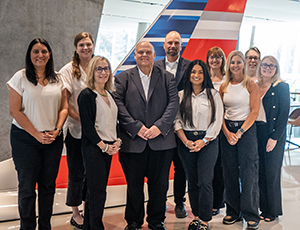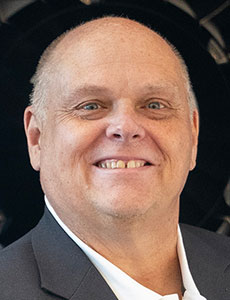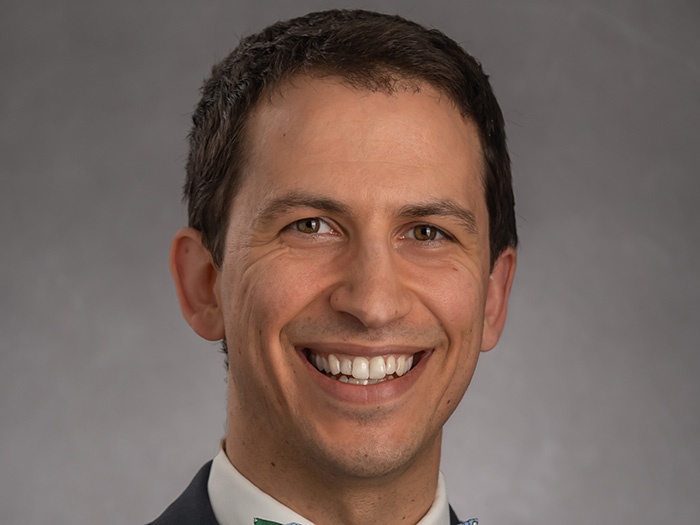2025 Theo Award Winner: American Airlines
![]() At American Airlines, caring for team members goes beyond the skies. In 2021, the company set out to reimagine its return-to-work program to ensure that injured team members, whether hurt on or off the job, could safely and meaningfully rejoin the workplace.
At American Airlines, caring for team members goes beyond the skies. In 2021, the company set out to reimagine its return-to-work program to ensure that injured team members, whether hurt on or off the job, could safely and meaningfully rejoin the workplace.
With a workforce spanning all 50 states, American recognized that a consistent, inclusive approach to recovery was essential — not only for individual wellbeing but for the airline’s long-term success.
Tackling the Problem
Bryan Conner, senior manager of workers’ compensation at American Airlines, along with a skilled team of claims professionals, has been instrumental in advancing the company’s return-to-work program.
The team partnered with Genex (now Enlyte) to conduct a detailed analysis of job tasks at major hubs like Miami, Chicago, Charlotte, and DFW. Every role was evaluated — from lifting baggage to operating de-icing equipment — to identify tasks that could be safely performed under various medical restrictions. The result: A library of transitional assignments tailored to a wide range of physical capabilities, starting from zero-pound lifting restrictions.
Union collaboration was key throughout the process, ensuring transparency and building trust with frontline teams.
Recognizing that busy frontline managers couldn’t always oversee return-to-work logistics, American created a dedicated department in partnership with Sedgwick. These return-to-work specialists are certified in ADA compliance and vocational rehabilitation. They coordinate directly with stations and hubs to match team members with appropriate assignments and issue electronic job offers that clearly outline pay, shift, restrictions and contact information.
“When a team member has restrictions, our specialists step in to make sure they’re supported and set up for success,” said Conner.
To build confidence in the program, American developed a dashboard that provides real-time insights into participation, duration and outcomes. This transparency helped address concerns about program misuse and productivity.
 “The data showed that the average limited duty assignment lasted just 39 days — well below the 90-day cap,” said Annette Griffith, senior claims analyst with American. “It helped leaders see that limited duty isn’t just possible — it’s highly effective when implemented with careful planning and execution.”
“The data showed that the average limited duty assignment lasted just 39 days — well below the 90-day cap,” said Annette Griffith, senior claims analyst with American. “It helped leaders see that limited duty isn’t just possible — it’s highly effective when implemented with careful planning and execution.”
The numbers speak for themselves. Team members who participated in limited duty assignments experienced significantly better outcomes compared to those whose recovery did not include transitional work:
- Nearly 80% lower claim costs
- 70% fewer medical visits
- 71% faster return to full duty
- Significantly reduced prescription use, including opioids
- Over 85% reduction in lost time costs per claim
- 15% drop in litigation rates
Organization: American Airlines * Location: Fort Worth, Texas * Number of Employees: 133,300 * Category: Transportation & Logistics
Success to Build On
Today, more than 60% of eligible cases involve limited duty — a dramatic improvement. The program has also sparked healthy competition among hubs, with stations benchmarking performance and sharing best practices. American and Sedgwick continue to enhance reporting tools to support this momentum.
“Team members on limited duty are staying connected, staying active, and often recovering faster,” said Griffith. “This initiative goes beyond cost savings — it’s about living out our brand purpose of caring for people on life’s journey. That means not only supporting our customers, but also prioritizing the wellbeing of our team members by helping them safely return to work.”
Union support has been instrumental in helping team members understand the value of returning to meaningful work during recovery. American has also invested in vendor education, offering hands-on training to nurses and equipment providers so they better understand the physical demands of airline roles.
With 24/7 claim reporting and support services, American ensures that help is always available — no matter the time zone or shift. The return-to-work program reflects the airline’s broader commitment to its purpose: caring for people on life’s journey.
“We ask ourselves every day: how do our decisions impact affected team members and how can we improve their experience?” said Conner. “We’re working to make sure they get the right care from the start — so they can heal, return and thrive.” &
 The Theo Award celebrates its sophomore year, honoring 32 workers’ compensation programs for their excellence and service to workers across the nation. To learn more about the award and amazing qualities each winner possesses, visit here.
The Theo Award celebrates its sophomore year, honoring 32 workers’ compensation programs for their excellence and service to workers across the nation. To learn more about the award and amazing qualities each winner possesses, visit here.












